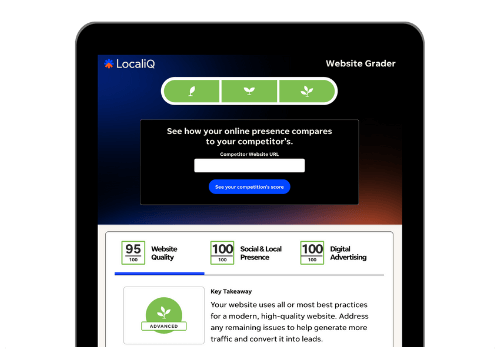It wasn’t so long ago that artificial intelligence was some super techy thing only available to the largest companies. But now there are so many ways every business—even one-person shops—can use it to reach new customers more efficiently.
We gathered up some AI marketing examples to show you how large and small businesses use it already (the image creation is really cool!). And we added some tips and tools so you can start using AI, too.
Table of contents:
- How is AI being used in marketing?
- Which companies use AI in marketing?
- 7 examples of brands using AI in marketing
How is AI being used in marketing?
For many people, AI tools like ChatGPT were a fun novelty used to eliminate recipe sagas on a webpage (you know, those long intros before you get to the good stuff–the actual recipe).
But as the AI tools, and our understanding of them, matured, we’re seeing a bunch of creative ways to apply the tech to everyday marketing challenges.
Here are just a few ways you can use AI in your marketing:
- Chatbots: Provide instant answers to common questions 24/7, and guide website visitors further towards conversion using an AI-powered chatbot.
- Content ideation: Prompt a generative AI copywriting tool to help brainstorm blog post titles, outlines, or social media content (but finalize it yourself for a human touch).
- Ad targeting: Use AI tools built into ad platforms like Google to get your message in front of your ideal audience more precisely.
- Personalized emails: Use AI to trigger an email with personalized aspects like the recipient’s name, products they’ve looked at, unique offers, or content links based on past behavior.
- Image generation: Produce custom images for ads, social media posts, or SEO articles (just make sure you triple-check them since AI images can get a bit weird).
- Automating repetitive tasks: Use AI to make recurring marketing tasks, like automating email replies, happen behind the scenes to save a bunch of time.
💡Use this guide to create your own small business marketing plan.
Which companies use AI in marketing?
It doesn’t take a huge marketing budget or tech know-how to make AI a part of your marketing strategy. With such a low barrier to entry, expect to see the AI-enabled digital marketing trend continue to gain steam.
How big businesses use AI
Amazon uses AI to make its voice search bot Alexa more conversational. When you log into Netflix, AI reviews your history to suggest flicks and shows you’re more likely to like.
The use cases for AI at big businesses are nearly endless. That’s probably why most executives at large corporations say they not only use AI now, but plan to make big investments in AI-enabled technology soon. In fact, it’s hard to find a Fortune 500 company that doesn’t use multiple versions of artificial intelligence to make its marketing better.
How small businesses use AI
What might be a little more surprising is that nearly half of small businesses recently surveyed have tapped into the promise of AI productivity. And marketing is one of the most popular use cases for AI at mom-and-pop shops.

Many of those small businesses started off using ChatGPT to help ideate ads or write business emails. But now they’re automatically updating huge product catalogs, building dynamic websites, and automating email outreach using AI. All of these things help small businesses punch well above their weight class to compete with larger organizations.
7 AI marketing examples from brands
Ready for some inspiration? Here are seven examples from businesses using AI to market their brand and products. Take a few notes so you can use them for yourself.
1. Seattle Ballooning: Bot booking
If you’ve ever dreamt of floating among the clouds in the Pacific Northwest, Seattle Ballooning can make it happen. And all it takes to book your drifting dream trip is a quick chat with a friendly bot.

Chatbots, like this one on the Balloon Seattle website, are a great way to use AI in marketing.
AI chatbots like this one give customers what they crave—namely, fast answers (90% of customer service questions can be answered by a chatbot in 10 or fewer messages).
You can follow Seattle Ballooning’s lofty example and use your own chatbot to answer common questions, book appointments, or even motivate visitors to take the next step towards becoming customers.
Say someone perusing your site asks to learn more, your chatbot can turn them into a lead by suggesting they subscribe to your newsletter. Or even better, get them to book an appointment. It’s like your own little sales assistant constantly working to get more customers.
2. Starbucks: Personalized messaging
Providing a lift of a different sort, Starbucks is no slouch at using technology to boost sales. In this case, we’re talking about the coffee chain leveraging its house-blended AI, called Deep Brew, to send personalized messages to increase rewards program membership.

Follow Starbucks and use AI to create and send personalized messages.
Here’s how it worked. Deep Brew reviewed the past behavior of occasional Starbucks visitors who ordered from the app but weren’t yet loyalty members. It then created personalized offers based on things like the drinks they ordered and the time of day they visited—plus a huge pile of data from general customer interactions—to encourage them to become loyalty members. The plan netted Starbucks over 4 million new loyalty members.
You don’t have to develop your own AI like Starbucks did. There are several generative AI tools you can use to create customized marketing messages and automate when they’re sent. So, when someone abandons a cart full of products, your AI-powered email tool can offer them an instant 10% discount to complete their purchase.
3. Nestle: Brand consistency
When you have a team of 15,000 marketers running 200 brands, maintaining a consistent message is no small task. Luckily, AI is well-suited to ingesting and normalizing large numbers of inputs. And that’s exactly how Nestle uses AI—to keep its social media content, wherever it originates, within brand guidelines.

Whether you’re big like Nestle or a small team, AI can help keep your marketing message consistent.
To make it happen, the consumer-packaged goods giant uses an AI platform called Cortex that’s been fed thousands of the company’s ads and trained on its brand guidelines. Every creative asset bound for social media gets a grade from Cortex, indicating its adherence to standards and the likelihood of success on specific platforms like Facebook or YouTube.
Most businesses don’t have thousands of marketers and hundreds of brands. But they (you!) can still benefit from a consistent message. Many AI platforms have ways to add your own style guide and marketing rules. Then no matter who writes an ad or a social post, the AI will double-check that it stays on message. This is super helpful if you work with freelancers or agencies to do some of your marketing.
4. Nike: AI video creation
Perhaps the only person who could consistently beat tennis star Serena Williams in her prime is Serena Williams in her prime. That’s what Nike set out to show by creating a match between two virtual versions of Williams—one from 1999 and one from 2017.

Nike used AI to create stunning video, and you can, too.
The AI—generated by AKQA studios—created the two e-Serenas by modeling the player’s shot selections, reactivity, agility, and decision-making from each era. Nike aired the match to its YouTube subscribers, generating plenty of pre-event buzz on social media beforehand.
Mimicking this tactic would be too big of a swing for most businesses. But there is an interesting takeaway here. Video is a powerful marketing medium that’s often too time-consuming for small businesses to create. Generative AI software will make a new, unique video for you based on a prompt. Use it to boost engagement on social media or as a part of search ads strategy.
5. BMW: AI-generated images
In 2023, BMW used generative AI to turn its iconic automobiles into the ultimate art machine. The company fed an AI platform 50,000 images of historic and contemporary art, tapped some AI experts and artists to create next-level prompts, and produced a series of virtual paint jobs for its 8 Series Gran Coupe luxury ride.

You don’t have to be BMW to use AI to generate marketing images for your business.
This isn’t the only time BMW has played around with decorating its vehicles. In fact, there are currently 20 Art Cars painted (in real life) by famous artists like Andy Warhol dating back to 1975. But this new version is an interesting example of generating brand affinity using AI.
There are much more practical ways to use generative AI image creation in your business. Tools like Jasper, for example, will spin up a photo-realistic picture of people sitting in a coffee shop or typing on their laptop. Be very careful, though. AI is notorious for generating weird effects, like two hands blending into one. Closely scrutinize any image before using it in your marketing.
6. CCG: Email subject line testing
The CCA Club Group (CCG) has a huge email subscriber list broken into four segments (rewards, travel, merchandise, and newsletter). The travel brand uses AI-powered content experimentation to automatically test subject line variants, finding the versions that resonate best with each of its subscriber segments.

AI made it easy for CCG to A/B test email subject lines on a large scale.
Phrasee, the email platform CCG used, applied different styles, tones, words, and phrases to emails for each audience segment. It then quickly surfaced which delivered the best open rates. By zeroing in on the best subject lines, CCG got a boost of nearly one million incremental email opens.
Subject lines are the most important aspect of your marketing emails because if they don’t do the job, people don’t read the rest of your email. Quickly trialing subject lines is a perfect place for any marketer to get started using AI.
7. Goosehead Insurance: Revamped website
Refreshing a website can easily overwhelm a small team that’s already operating at capacity. Goosehead Insurance used Jasper to speed up the difficult task of writing a variety of content to fill every page.

Generative AI can help bust up writer’s block when you have a lot of copy to create, like Goosehead Insurance did.
Using the right prompts in its AI tool, the Goosehead team created FAQ documents, a market analysis, benefits statements, and several other assets. This would have taken a ton of time to write, especially since it was all geared towards a new audience.
AI can be a great partner for overcoming writer’s block or generating alternatives to something you’ve already produced. Try writing a social post or landing page freehand, paste it into a generative AI chatbot, and prompt it to “make it shorter” or “make it funnier.” The results won’t be perfect, but they’ll inspire new ways to consider the copy.
👋 AI is great, but you can improve your site right now with our free Website Grader. Get it and give your online presence a huge boost today.
Use AI marketing examples to grow your business
You probably engage with AI marketing more than you know. Pay attention to chatbots, online booking agents, and images in ads. You’ll start spotting the AI—and pick up ideas for your own marketing.
In the meantime, remember these AI marketing examples and how businesses used the technology for:
- Online booking and lead generation
- Customized and automated marketing messages
- Brand consistency
- Video creation
- Image generation
- Writing and testing subject lines
- Creating and improving website copy
Related Articles
-

40 A+ Back-to-School Marketing Ideas & Promotions for Any Business
-

35 Back-to-School Slogans for Your Marketing That Bring A+ Results
-

17 Best Giveaway Ideas for Small Businesses to Win More Customers
-

27 Splashy (& Doable!) Grand Opening Ideas for Retail Stores
-

9 Bold Brand Awareness Campaign Examples (+Tips for Yours)


